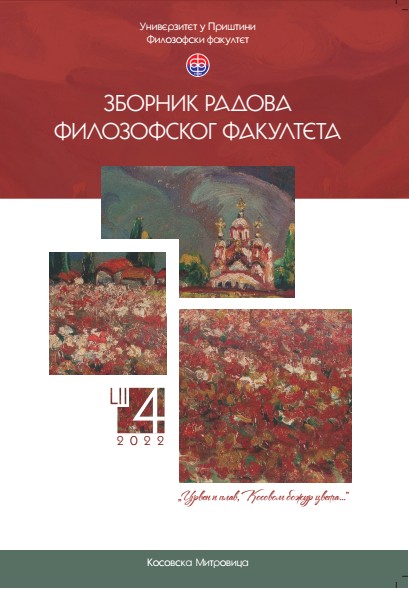Памћење спорних легата прошлости или кад култура сећања устукне пред културом поништавања
Remembering Contested Legacies of the Past or When the Culture of Remembrance Gives Way to the Cancel Culture
Author(s): Milica Božić MarojevićSubject(s): History of Art
Published by: Филозофски факултет, Универзитет у Приштини
Keywords: past; memory; culture of remembrance; heritage; cancel culture; contested heritage.
Summary/Abstract: Everyday life is filled with numerous images of what has passed. All of them, although on different bases, leave a mark in time and thus become legacies of the past. Although we usually understand and accept this inherited corpus without a problem, sometimes we face certain inconveniences. For example, we would rather forget the heritage that remind us of colonialism and slavery, civil conflicts, wars, nuclear catastrophes. This paper searches for answers as to why certain contents from the past survive and others disappear, as well as when and why we decide to change their interpretation. Namely, the development of information technologies and new models of communication, in addition to many advantages, has contributed to the development of a perhaps not new, but certainly more striking culture of thinking. Based on condemnation, denial, harsh criticism without the possibility of adequate defence, the cancel culture is present in almost all spheres of everyday life. “Concern” for the culture of memory thus has reached a new level. Although the ban on specific forms of artistic expression has a long history, today we are witnessing the formation of movements that fight by all means for various types of censorship, and interestingly, they are no longer instructed by governing structures, but come from culture, science, and art. Justifying these actions with pedagogical reasons, correcting injustices, and caring for the culture of remembrance, unpleasant and politically incorrect contents are avoided, exhibitions are cancelled, monuments are occupied, modified, destroyed. The contribution of once famous artists and scientists is being revised and challenged. This raises a number of questions. What ideas inspire such iconoclastic actions? Who are the actors involved in these practices? When diversity became a problem, where did the dialogue go? What are the spatial, social and political implications of these transformations? In the circumstances of such rapid social changes and (re)interpretation, it is increasingly difficult to remain calm and objective even in science. The general chase, and sometimes the mass hysteria, help us to easily slip into revisionism. Instead of focusing on the possibilities that different values of the legacies of the past open to us, it seems that we are moving towards the fact that every heritage, sooner or later, will be disputable.
Journal: Зборник радова Филозофског факултета у Приштини
- Issue Year: 52/2022
- Issue No: 4
- Page Range: 259-275
- Page Count: 17
- Language: Serbian

